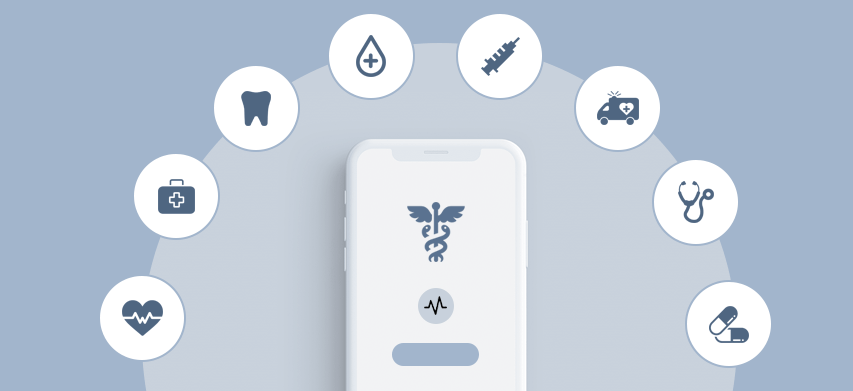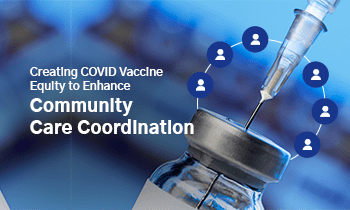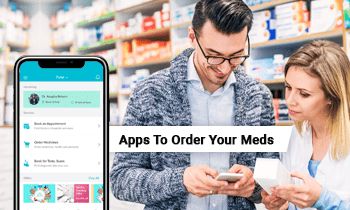In recent years, the integration of mobile devices into healthcare has ushered in a new era of efficiency, accessibility, and improved patient care. The convenience and versatility of smartphones and tablets have revolutionized the way healthcare professionals operate, leading to numerous benefits for both practitioners and patients. In this blog post, we will explore the key advantages of incorporating mobile devices into the healthcare landscape.

As mobile devices continue to evolve, their impact on healthcare becomes increasingly profound. From improving communication and collaboration among healthcare professionals to empowering patients in managing their health, the benefits of mHealth are undeniable. Let’s take a look at the key benefits of mobile devices in healthcare.
Benefits of Mobile Devices in Healthcare:
#1 Efficient Healthcare Data Collection
The healthcare industry is massive, with phenomenal volumes of data being transferred every second between healthcare organizations, aggregators, and patients. Healthcare providers need access to patient data without limiting their movement or information access. Mobile devices can streamline this data collection, transfer, and documentation processes.
Healthcare providers can record patient information, update electronic health records (EHRs), capture vital signs directly on their devices, upload prescriptions, and simplify the medication adherence process through specialized health apps. This not only saves time but also enhances the accuracy of medical records.
One important note here though – the healthcare organizations have to align themselves with the HIPAA rules and regulations in order to share information with other service providers. This act has provided healthcare institutions with a better way to distribute information. They don’t have to worry about misplaced files, papers, and folders which has paved the way for mobile devices in the healthcare sector.
#2 Real-time communication with Stakeholders
This is one of the significant benefits that mobile devices have brought to the healthcare industry. Mobile devices facilitate seamless communication among healthcare professionals, fostering collaboration and quick information exchange. Instant messaging, video conferencing, and secure messaging apps allow doctors, nurses, and other staff to coordinate efficiently, leading to better patient outcomes.
Physicians can examine patients remotely via video conferencing and provide on-the-spot advice. Mobile devices used in healthcare enable them to access patient records, treatment plans, and histories at the point of care. This immediate access to critical information empowers clinicians to make data-driven, smart decisions, reducing the likelihood of errors and improving overall patient safety.
Experts in different parts of the world can coordinate simultaneously to exchange valuable information and consult each other. This can help the patients receive better treatment from healthcare experts.
#3 Improved Workflow and Efficiency of Physician
Physicians are an integral part of the healthcare ecosystem. The job of a physician is rewarding, sure, but it is also a high-stress job. Statistics show that almost 60% of physicians feel stressed and tired from their highly demanding jobs.
The main reason given by these people is that the data entries and other administrative tasks take up a lot of their time and energy, leaving little or no energy for patient care. They can tackle this problem with great ease, by leveraging mobile devices.
Physicians can use these mobile devices to record data about patients efficiently and with minimal effort, which can make their jobs a lot easier. Also, mobile devices can provide accurate and updated medication information. Additionally, mobile devices can be used to automatically handle paperwork which can provide physicians more time for patient treatment. From appointment scheduling and billing to prescription management, mobile apps streamline administrative tasks, allowing healthcare professionals to focus more on patient care.

#4 Direct Patient Management
Traditional healthcare methods only provide a limited observation scope to physicians, which restricts their understanding of how their patients are responding to medications or recovering. The use of mobile devices in healthcare can overcome this concern.
With multiple health accessories such as health bands, wearable distance trackers, and fitness apps available in the market, physicians can directly monitor the data of the patients through their smart devices and determine the recovery speed and effectiveness of the patient’s lifestyle.
They can also directly provide prescriptions through smartphones and help their patients recover more speedily. Mobile devices can also be used to remotely contact the patient in real-time and ask about their current whereabouts and treatments which give the doctors better insights.
Furthermore, medication reminder apps, dosage trackers, and refill alerts ensure that patients take their medications as prescribed, reducing the risk of complications and hospital readmissions.
#5 Real-time Access to Medical Research and Information
Healthcare professionals can stay up-to-date with the latest medical research, guidelines, and treatment protocols through mobile devices. Traditional methods of treatment required doctors to run to the library to get info on a new case. However, with the advent of smartphones, information is just a click away. This has, in turn, provided for better convenience.
Also, with new forms of communication like video conferencing and voice conferencing now used extensively, physicians can carry out meetings over mobile devices with other experts and save a lot of time. Thus, medical apps and online resources provide instant access to a vast pool of information, enabling practitioners to make evidence-based decisions and deliver high-quality patient care.
#6 Increased Accuracy in Documentation
In the past, patient records and documents were hard paper printed which made maintaining and organizing it a burden for the healthcare industry. This problem was eased by the introduction of computers, but mobile devices have taken it a step further and completely eradicated the need for paper documents whatsoever.
Mobile devices help healthcare providers and medical staff by allowing them to keep accurate records of patients and their prescriptions. The errors which could be caused by handwritten notes are minimized by digitized documents. Apps can be used to run automated prescription checks that have greatly helped healthcare providers.
#7 Personalized Patient Care
Physicians are the backbone of healthcare institutions and their job demands a lot of time and energy. As discussed above, physicians handle a lot of patients at the same time and also carry out other administrative work which makes their job a hectic one.
By leveraging the capabilities of smartphones, wearables, and healthcare apps, personalized care plans are becoming more accessible, allowing healthcare providers to address individual needs, improve outcomes, and empower patients to actively participate in their health journeys.
This mobile technology in healthcare empowers providers to craft tailored treatment plans by harnessing real-time health data, facilitating remote monitoring, and enhancing medication adherence. From supporting mental health with personalized resources to managing chronic conditions and fostering patient education, mobile devices are revolutionizing the healthcare experience.
The advent of telemedicine software solutions further extends personalized care beyond physical appointments, enabling remote consultations.
This evolution in mobile healthcare technology not only ensures more effective interventions and treatment outcomes but also empowers patients to actively engage in their health journeys, marking a paradigm shift towards a truly patient-centric healthcare system.
#8 Better Communication
The integration of mobile devices is proving instrumental in fostering better communication among healthcare professionals, patients, and caregivers.
Mobile devices facilitate seamless and instantaneous communication through secure messaging apps, enabling healthcare teams to coordinate efficiently and share critical information in real time. This enhanced communication leads to improved collaboration among practitioners, resulting in quicker decision-making and ultimately better patient outcomes.
Additionally, mobile devices empower patients by providing direct and convenient channels to interact with their healthcare providers, ask questions, and receive timely updates on their health.
The accessibility and immediacy of communication through mobile-based platforms contribute to a more patient-centric approach, strengthening the bond between healthcare providers and those under their care.
As healthcare technology continues to advance, the integration of mobile devices ensures that communication in healthcare becomes not just efficient but also more patient-centered, transforming the way medical professionals engage with each other and their patients.
Conclusion
The impact of mobile technology in healthcare has been significant. As seen above, there are a lot of benefits of mobile devices in healthcare. With mobile devices and fitness accessories being used widely now, the communication between patients and providers has become easier and this has ultimately led to improved patient care delivery. The future of healthcare undoubtedly involves the continued integration and utilization of mobile devices for the betterment of both patients and providers.
While mobile devices in healthcare do hold tremendous promise, adhering to HIPAA and other regulatory protocols is a must. For this, you need to join hands with a trusted HealthTech partner with proven expertise in delivering HIPAA-compliant mobile-based solutions. Connect with us to see how you can benefit from technology developed for the healthcare industry vertical.

Author's Bio

Shailendra Sinhasane (Shail) is the co-founder and CEO of Mobisoft Infotech. He has been focused on cloud solutions, mobile strategy, cross-platform development, IoT innovations and advising healthcare startups in building scalable products.


